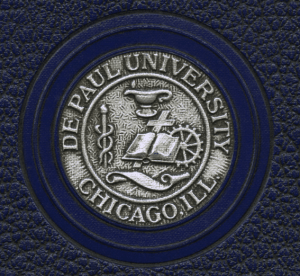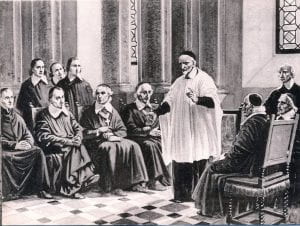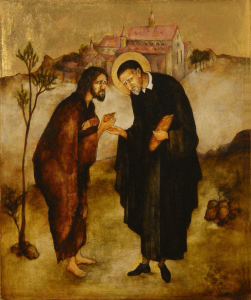 “I felt interiorly moved freely to place myself in a disposition of total availability…” – Louise de Marillac. A.5, (Retreat), c. 1632, Spiritual Writings, 715.
“I felt interiorly moved freely to place myself in a disposition of total availability…” – Louise de Marillac. A.5, (Retreat), c. 1632, Spiritual Writings, 715.
A woman entered a church in a large city. Anxious and uncertain about her future, she sought a few moments of peace, and perhaps a hint of clarity. Taking her place amidst still surroundings, she closed her eyes and began to interlace words and images into the form of prayer. She was comfortable in the familiar ritual, gradually feeling calm restored to her spirit as she gently drew nearer to God—a power greater than her own anxieties. Attentive to what stirred within her heart during this quiet time, the woman had a vision. A moment when her mind was instantly freed of all doubt. She received a glimpse of her future and knew that her deepest desire would someday be realized.
The woman at prayer that day went by the name of Madame le Gras, but she is better known to history, and to us at DePaul, as Saint Louise de Marillac. The vision she experienced led her to understand that her greatest desire would be fulfilled, and that she would someday live in a community spending her life serving the poor. Upon leaving the church that day in 1623, Louise immediately wrote about what she called her “Lumiere” (or Enlightening) experience. She carried this description with her always so that she would never forget the grace of that moment, and the peace and purpose it provided her.
Almost 400 years separate Louise and her Lumiere from us today. But, like Louise, we too know periods of anxiety and confusion, as well as times of great peace and clarity of purpose. We harbor hopes for what the future could be for ourselves and for the world.
Perhaps today we can be like Louise, make a calm space around and inside of us, and devote a few moments to silent meditation or prayer. We can use this quiet time to begin to listen for the voice within and to pay attention to the desires of our heart. What may they be telling us? Maybe, like Louise, we can make this time of contemplation a regular habit to help us meet the challenges of the day, as well as to discover the grace and peace that await.
Reflection by:
Tom Judge, Chaplain, Division of Mission & Ministry









